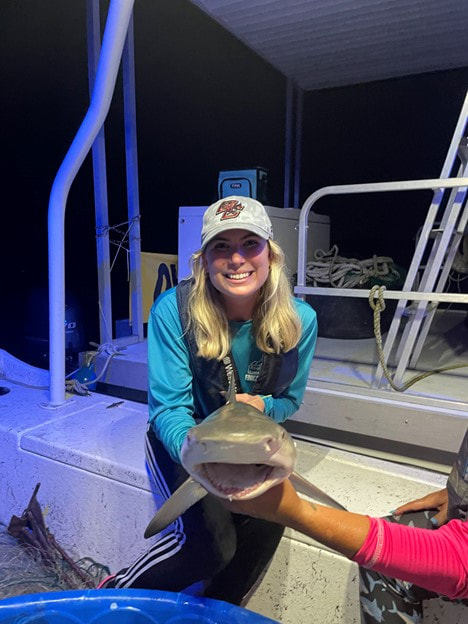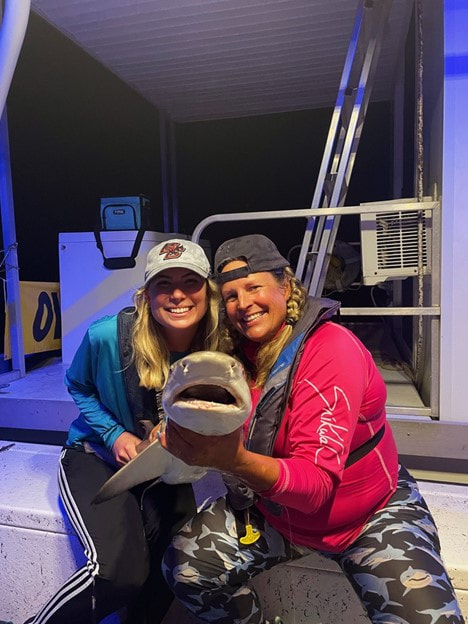|
When I was 8 years old, I watched the news of the Deepwater Horizon oil spill. I knew then that I wanted to work in environmental protection. When I applied to the Environmental Studies major at Boston College, I was confident it was the right choice. While I had taken many classes in environmental studies, going into the summer after my sophomore year, I still had virtually no experience in field research. I knew that was going to change as I prepared to head off to Rookery Bay Estuarian Reserve for my fellowship. My goal was to connect the things I was learning at Boston College with new hands-on experiences and I am happy to say that is exactly what I was able to do.
At Boston College, my studies revolve around the sociology of how humans interact with and impact the environment. Thus, the majority of the time my concentrations focus on how to improve human lives by mitigating their impact on the environment. At Rookery Bay I had the unique experience of seeing this come to life with educational and research opportunities. Working in the Environmental Learning Center, I learned how to explain scientific findings and research to different age groups in ways they could understand without a scientific background. This was extremely rewarding as I had learned in previous classes how important education is in changing people’s lives and how they view and affect the environment. At Rookery Bay I was able to get hands-on experience with numerous research projects. While I had worked with data regarding marine science and biology, I had never been the one collecting the data. This was an entirely new experience. In these projects, I got to see the impact humans had on the local ecosystems in south Florida. I saw this impact through trawling and shark tagging. In trawls, I had the opportunity to identify local flora and fauna and collect data, such as size and sample population. We would go to multiple bays to collect data on how the fish populations were changing because of things like construction and drainage in different areas. Trawling focused on how the ecosystems were affected, however, I got to see this on a smaller level through shark tagging which only focused on the individual species. Shark tagging was an important part of my research at Rookery Bay. We monitored juvenile sharks through tagging and recapture. We collected data on new sharks as well as recaptured sharks to later look at where these sharks had moved from and how long it had been since their last capture. This was also the first time I worked hands-on with sharks. After collecting data, I was able to organize the data in a spreadsheet to figure out which bays had the most sharks, what time the sharks were most active, and which species of shark was found the most in each bay. This made it easy to see correlations between bays, shark species, and human aspects such as drainage into those bays. This research solidified that I am on the right track for my career. It has given me a new perspective on how to connect my studies with the research I participated in this summer. I am so grateful for my experiences this summer through my MISS fellowship.
0 Comments
Leave a Reply. |
Archives
May 2024
Categories |
About missMISS provides a community and funded opportunities for gender minorities of color who wish to enter the field of shark sciences. We aim to show that there are many gender minorities of color succeeding in and interested in this field.
We fundraise and apply for grants to create paid opportunities to attempt to knock down the financial barrier into shark sciences. We encourage other organizations in our field to do the same. |
Jump to:Our Story
Become a Member Friends of MISS Workshops Sponsorship Program Donate 2023 Annual Report 2023-2026 Strategic Plan Results Framework Final Report MISS is a registered US nonprofit, tax-exempt corporation under 501 (c)(3) of the Internal Revenue Code (EIN: 85-2192211).
|
CONTACT USMailing Address:
PO Box 10493 Bradenton, FL 34282 © COPYRIGHT 2022. Minorities in Shark Sciences Inc.
|



 RSS Feed
RSS Feed
